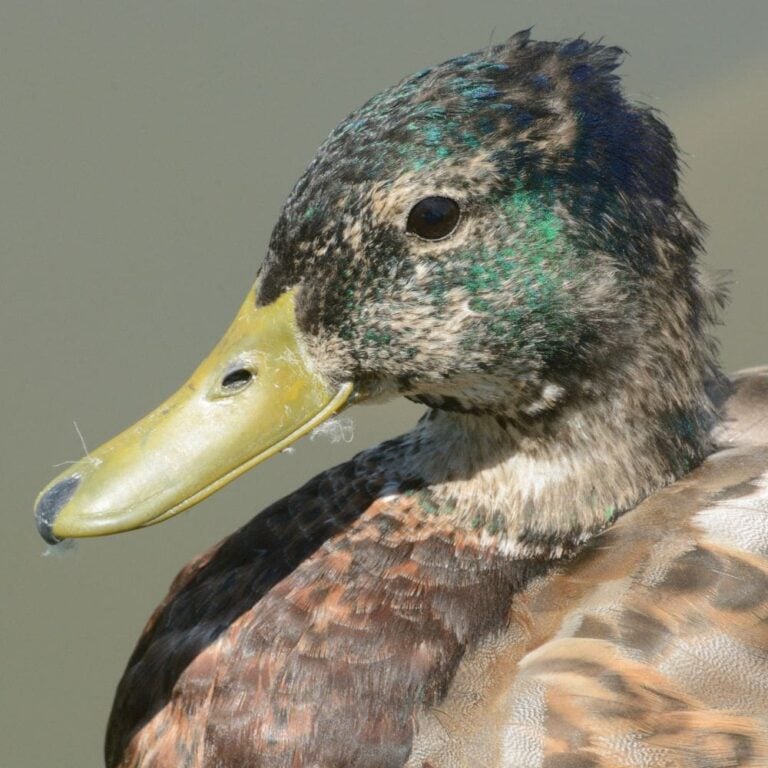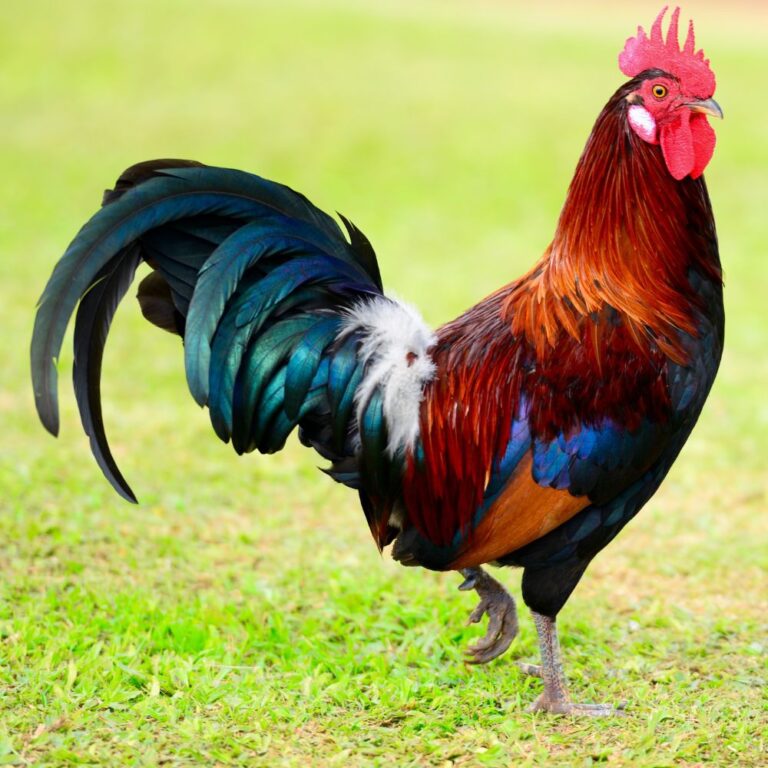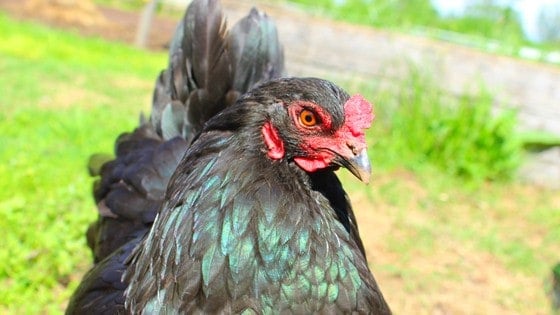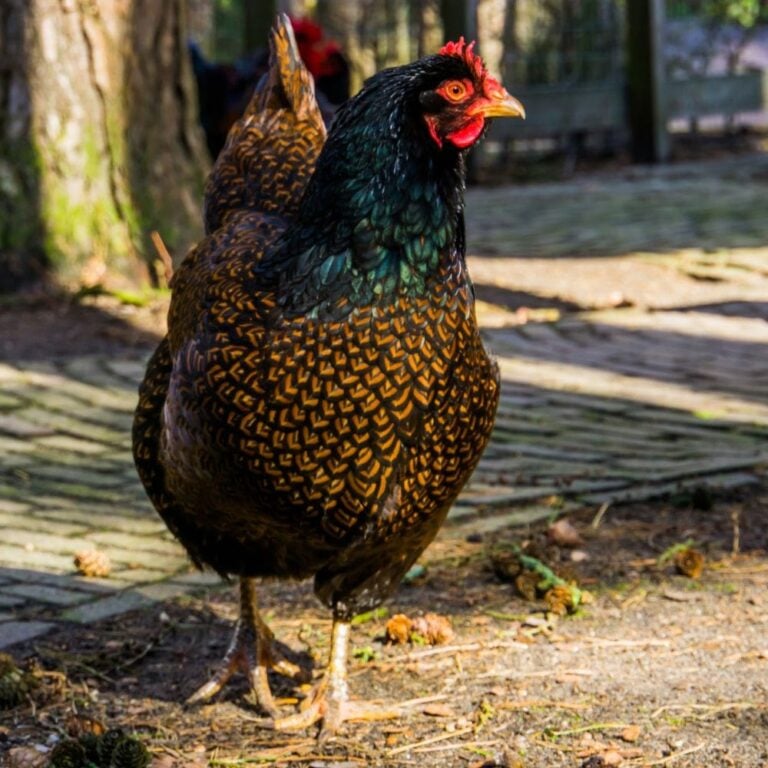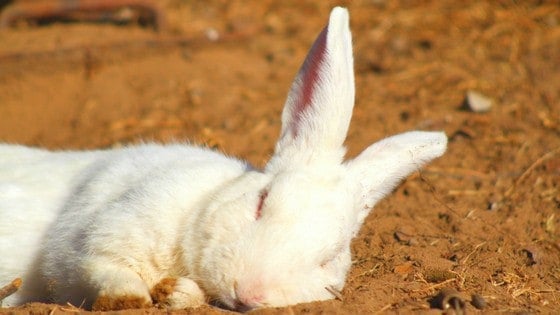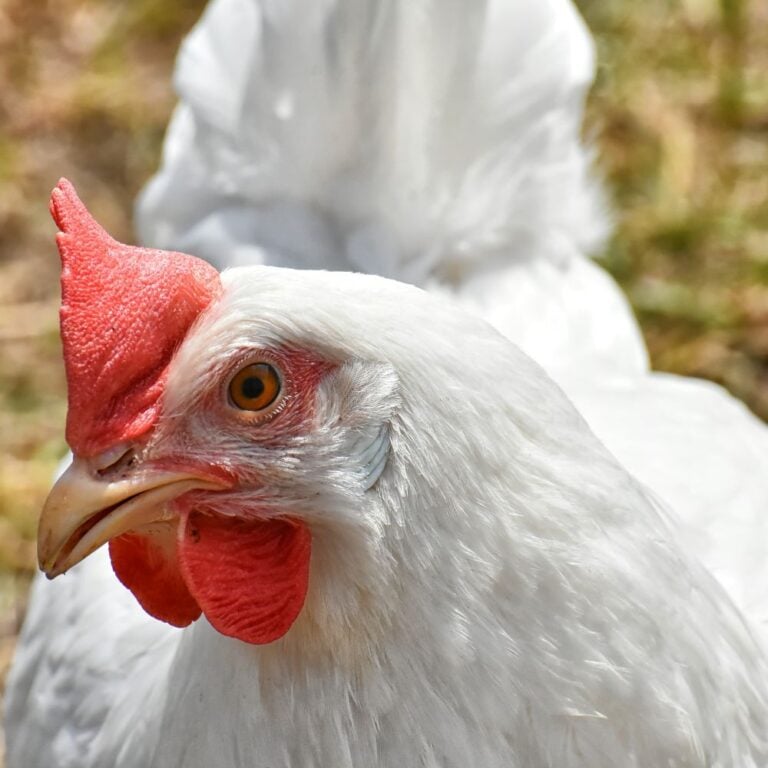It’s July, and the middle of summer comes with its own special chores. Here’s what to do in your coop in July so you raise a healthy flock of hens, ducks, geese, and more!
The hot days of summer are fun but definitely have their challenges for the critters we love. Keep reading to learn some tricks and tips for beating illness, heat stroke, pest invasion, and more. You can apply many of these tips and guidelines not only to chickens but to many other loveables you care for.❤️
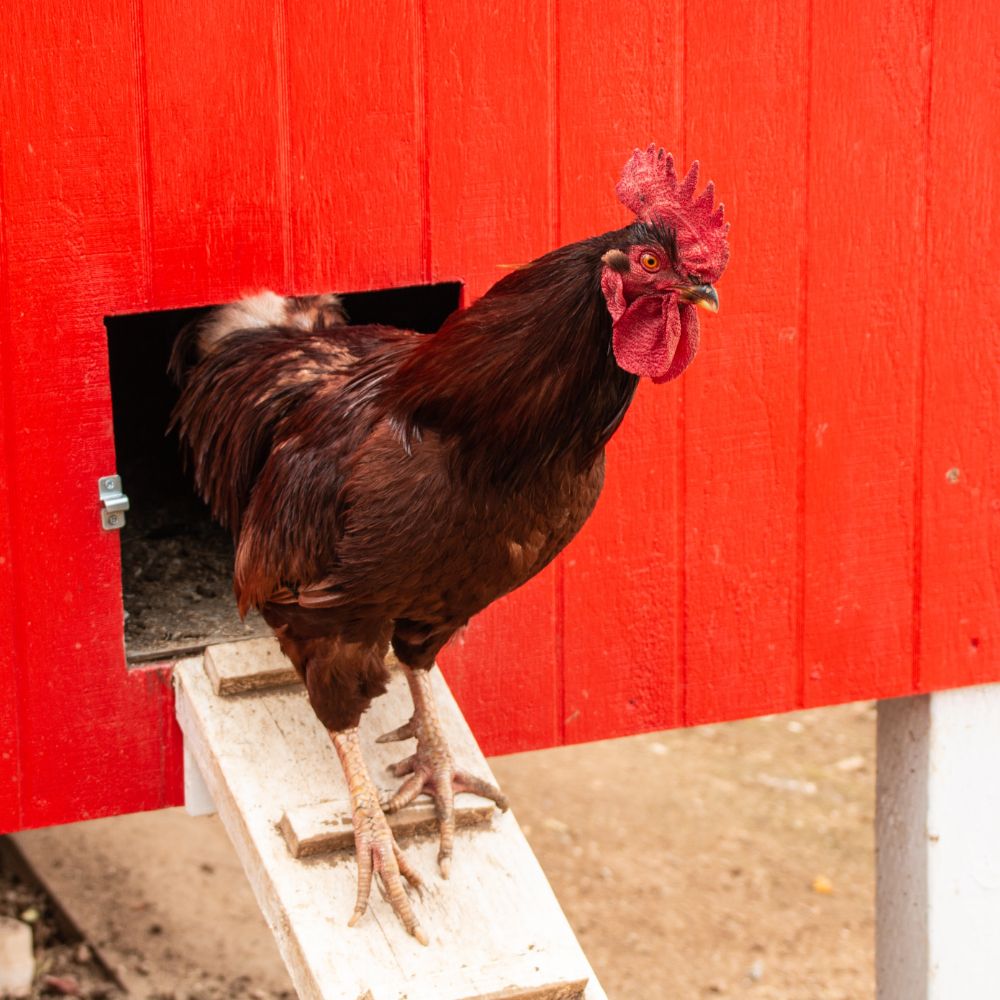
Table of Contents (Quickly Jump To Information)
Keep out pests with herbs and spices
Herbs like cinnamon, mint, and wormwood can keep pests out of your chickens’ nesting boxes. Placing small bundles or sprigs of these herbs in the boxes repels pests like mites, lice, and rodents. You can also use a special blend such as PestsBGone especially if you don’t have time to grow, harvest, and manage herbs. These blends make this process easy peasy.
The aromatic oils released by the herbs create an unfavorable environment for pests, ensuring a clean and comfortable nesting space for your chickens. These herbs also offer health benefits and promote good hygiene. By using herbs, you create a pleasant and pest-free environment for your flock.
Check for signs of fly strike
What is fly strike? According to Poultry DVM Flystrike, also known as myiasis, is a condition where flies lay their eggs in the chicken’s skin or body cavities, resulting in the hatching larvae (maggots) eating the surrounding tissue. Read all the details here.
Fly strike can be (and often is) deadly, but you might be able to prevent it if you’re vigilant. If your hens have any cuts or abrasions, be sure to clean the wound thoroughly DAILY and cover it if possible.
If it looks like your chicken or duck is excessively bothered by flies, bring him or her inside, clean the wound (get a vet’s advice if you see maggots at all) and keep her inside until the wound is healed.
If you have roosters and/or drakes, be sure to check the bellies and backs of your hens for cuts. If your hens have bare skin on their bellies, consider isolating them from the roosters. Also, consider getting them a chicken saddle to help protect them.
Clean coop thoroughly
Maintaining a clean chicken coop is crucial for the well-being of your flock, and establishing a regular cleaning routine is key. By dedicating time on a daily or weekly basis, you can prevent the accumulation of waste, bacteria, and unpleasant odors. Sweep or shovel out old bedding that is heavily soiled and sprinkle with an all-natural coop refresher to reduce ammonia.
Once a month I suggest a major cleanout. Start by removing soiled bedding and replacing it with fresh, clean material. Utilize a rake or shovel to clear away droppings and debris from the coop floor. Thoroughly scrub all surfaces, including walls, perches, and nesting boxes, using a mild detergent and water solution. Allow the coop to dry completely before adding fresh bedding.
Consistently prioritizing the cleanliness of your chicken coop not only provides a comfortable living environment, but it also greatly reduces the risks of disease and pests, ensuring your flock remains healthy and content.
Clean out nesting boxes
Nesting boxes can get pretty gross and dirty. And guess who loves gross and dirty living arrangements? You guessed it – FLIES. Clean your nesting boxes to greatly reduce the fly population. Once they are clean put nesting herbs designed to repel pests in the boxes.
If broody hens are sitting on eggs, don’t clean the nesting boxes, but do use the herbs to freshen them up. You don’t want to disturb the hen and accidentally cause her to abandon her nest.
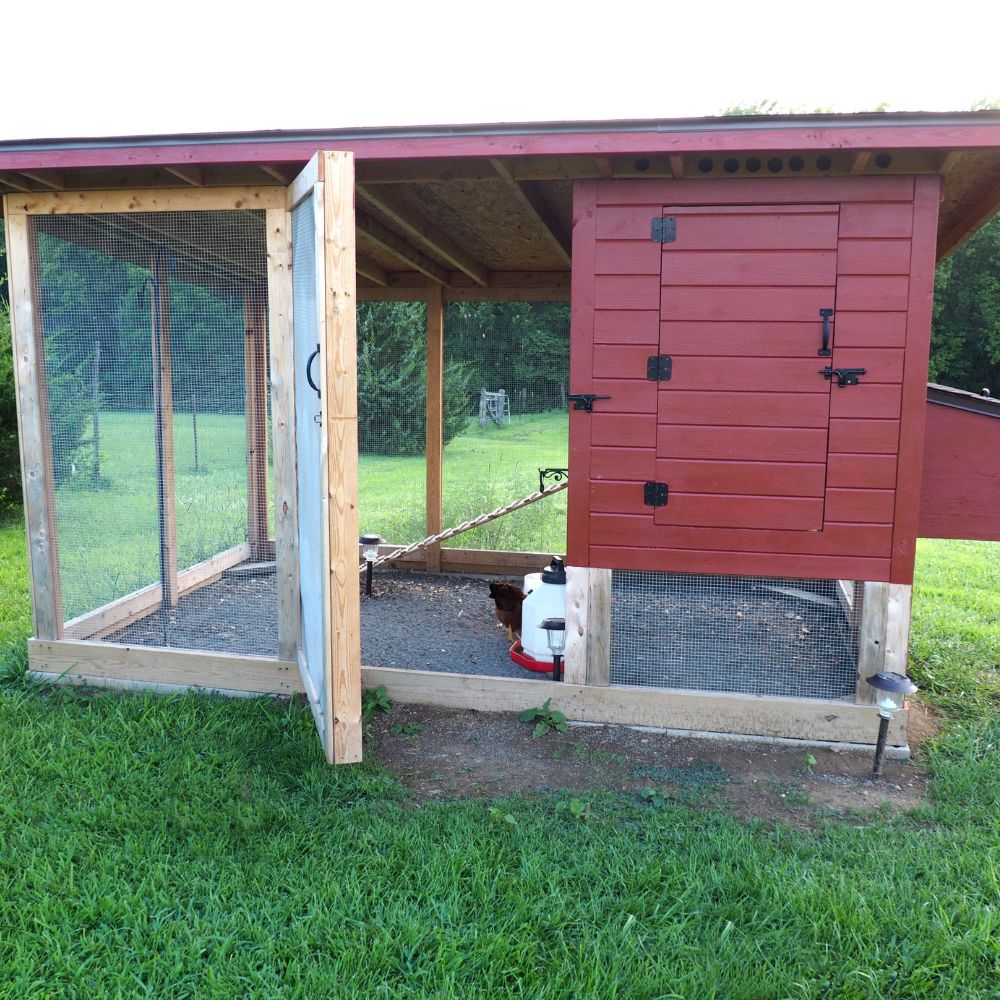
Increase circulation in the coop
During the scorching month of July, incorporating a fan into your chicken coop can provide much-needed relief for your flock (if you have electricity in or near your coop).
The gentle breeze generated by the fan helps to circulate air, preventing heat stress and maintaining a comfortable environment for your chickens. By strategically placing the fan to optimize air circulation and temperature regulation, you can ensure that your feathered friends stay cool, happy, and healthy during the hot summer days.
Be sure it can’t be knocked over, and that it has a safety cover.
If you don’t have a way to incorporate a fan in your coop, at the very least you need to be sure all windows (and maybe doors) are open to allow a breeze to go through it.
Reduce the chance of heat stroke
Heat stroke can creep up suddenly. The idea to use a fan, if possible, is definitely one of the best ways to help with keeping your flock cooler.
You can also try to prevent heat stress by providing ice water and lots of shade. You can make healthy frozen treats for your hens as well. Try putting herbs in water and freezing it, then serve them to your birds. They will love it and they will have a healthy treat. You can also give them watermelon and canteloupe which they enjoy and it provides extra hydration.
You should check on your chickens regularly on very hot days. If your hens seem disoriented, are laying down and won’t get up, or suddenly can’t walk, they might be heat stressed. You may have to move any chickens that won’t get up into a cool area in your house or garage until they recover.
Beef tallow to the rescue
Not only can you use frozen peas, corn, or other treats to entice your hens to stay hydrated – you can also use beef tallow treats. They don’t melt easily, and chickens love the taste.
Freezing beef tallow, or other solid fat that has a high smoke point, is a great way to treat your hens and help them through the heat.
Create extra shade
If you don’t have good shady places for your flock to retreat to, then create extra shade with tarps, wood, or anything else you can think of. It looks ugly, but it might save a life.
Birds forced to sit in the direct heat will not fair well. They must have shade to take refuge in. Shaded areas are MUCH cooler than unshaded areas.
Egg laying help
Your chickens might need extra support in the summer heat in order to lay eggs regularly.
Fill nesting boxes with extra herbs, such as Best Eggs Ever, to promote healthy laying. They will love them and you’ll love the results. Heck, I’m tempted to eat these herbs because they smell so good and inviting! Nesting herbs also provide a healthy living environment.
You may also need to provide an extra calcium supplement such as oyster shells or dried eggshells to ensure good, healthy egg production.
Add electrolytes to water
When summer brings sweltering temperatures, adding electrolytes to your chickens’ water can be a lifesaver. Electrolytes help replenish vital minerals and nutrients lost through heat stress, ensuring proper hydration and overall health.
By providing electrolyte-infused water, you help your feathered friends stay hydrated, maintain electrolyte balance, and combat the challenges of summer heat, keeping them thriving throughout the hottest season.
You can find electrolytes in your local farm store.
Clean waterers
To prevent sickness and maintain your flock’s health, regularly clean your chicken waterers.
Start by emptying and rinsing them thoroughly with clean water. Scrub the interior and exterior, removing any algae or debris. Sanitize if desired and allow to dry completely before refilling with fresh water.
Keeping your waterers clean reduces the risk of bacterial contamination and promotes the well-being of your chickens.
Flood the run
You’ll notice your ducks laying down to keep cool. But you can take it a step further and you’d be surprised what a difference it can make.
For ducks, and even chickens, you can flood an area so they have a cool place to lay down. If you can flood an area under a tree or other shade, that’s even better.
You can also provide a kiddie pool for ducks, but you’ll need to keep it fresh and clean every day to prevent bacterial growth. They make water messy in a hurry.
Summary
Well, there you have it. July is a great month but it sure can be hot. And with extreme heat comes extra challenges for the critters we love. These tips will take you a long way in ensuring that your beloved backyard flock not only survives July but also enjoys July!
Maat van Uitert is a backyard chicken and sustainable living expert. She is also the author of Chickens: Naturally Raising A Sustainable Flock, which was a best seller in it’s Amazon category. Maat has been featured on NBC, CBS, AOL Finance, Community Chickens, the Huffington Post, Chickens magazine, Backyard Poultry, and Countryside Magazine. She lives on her farm in Southeast Missouri with her husband, two children, and about a million chickens and ducks. You can follow Maat on Facebook here and Instagram here.

